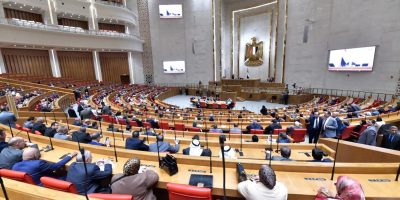Newsday

A CLUSTER of entities that play sensitive roles in the crime fight – including the Financial Intelligence Unit (FIU) – was handed more power by Parliament on November 29.
The Senate approved, without modification, a series of amendments sent to it from the House of Representatives. The changes will take effect on a date to be determined by the Cabinet.
Collectively, these new measures are merely a first, though important, step.
But many others remain, as noted in the concerns aired by Opposition Senator Jayanti Lutchmedial-Ramdial and Independent Senator Paul Richards in the chamber.
They raised serious questions of abuse and gaps in enforcement, respectively.
>
On paper, the amendments give the FIU sweeping authority to call for books, records, documents and information from regulated and non-regulated entities.
Further, they have widened the ambit of its scrutiny.
Disclosures to it are also easier now, as confidentiality restrictions no longer apply.
Additionally, it has been clarified that the body can impose million-dollar administrative fines for certain breaches. That clarification is overdue.
The new provisions also include measures affecting entities like the Securities and Exchange Commission and the DPP’s office, all aimed at meeting the international standards set by the Financial Action Task Force (FATF).
The piecemeal nature of these provisions is not ideal, but they are better late than never.
However, Ms Lutchmedial-Ramdial rightly pointed out the main concern: the risk of going too far.
Citing recent complaints from firearms dealers, she questioned whether this was the moment to give the FIU more firepower.
Finance Minister Colm Imbert dismissed this concern, saying the case in question was still being litigated.
>
Yet the overall point cannot be swept aside.
There’s a clear link between financial misdeeds and violent crime.
Any kind of regulatory overstepping, any perceived or actual instance of selective implementation or inference of bias, damages the state’s ability to tackle both effectively.
The missing component in the government’s legislative policy is the question of enforcement.
This relates to police capacity, as well as to the resources available to every entity that has a role in reporting and supervision, from the Central Bank down.
The FIU itself is currently overseeing a whopping 4,504 entities using a risk-based approach, according to its 2023 annual report. It receives hundreds – almost thousands – of red-flagged transactions each year.
In response to a contribution from Dr Richards about the prevalence of illicit gambling, Mr Imbert made the stunning disclosure that the much-touted gaming and betting legislation from 2021 will be proclaimed only later this year, or in 2025.
The delayed proclamation underscores the fact that the focus has been on merely checking regulatory boxes for too long, without sufficient attention to developing the capacity to implement new rules.















